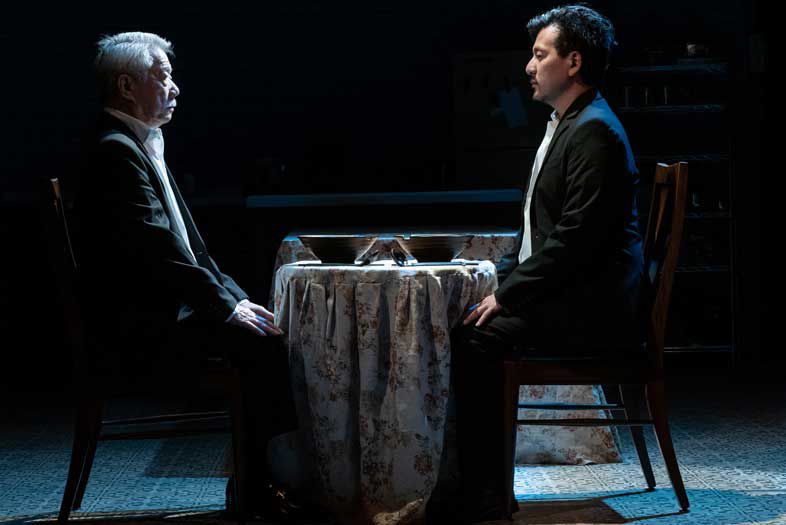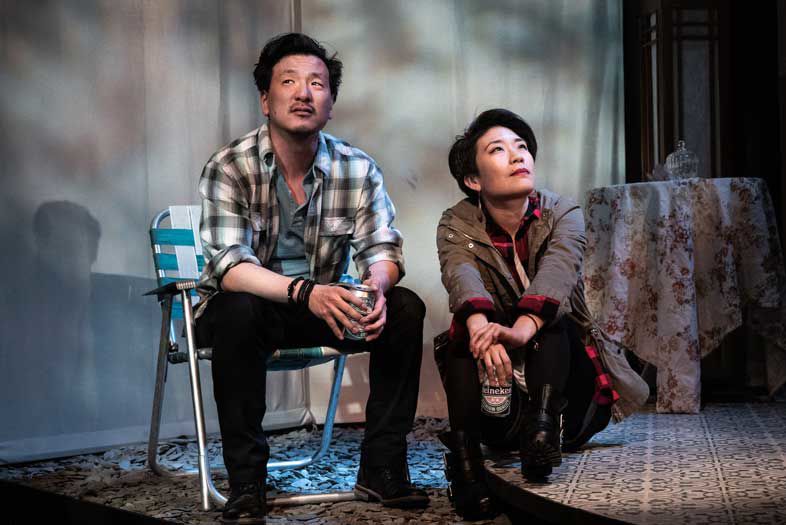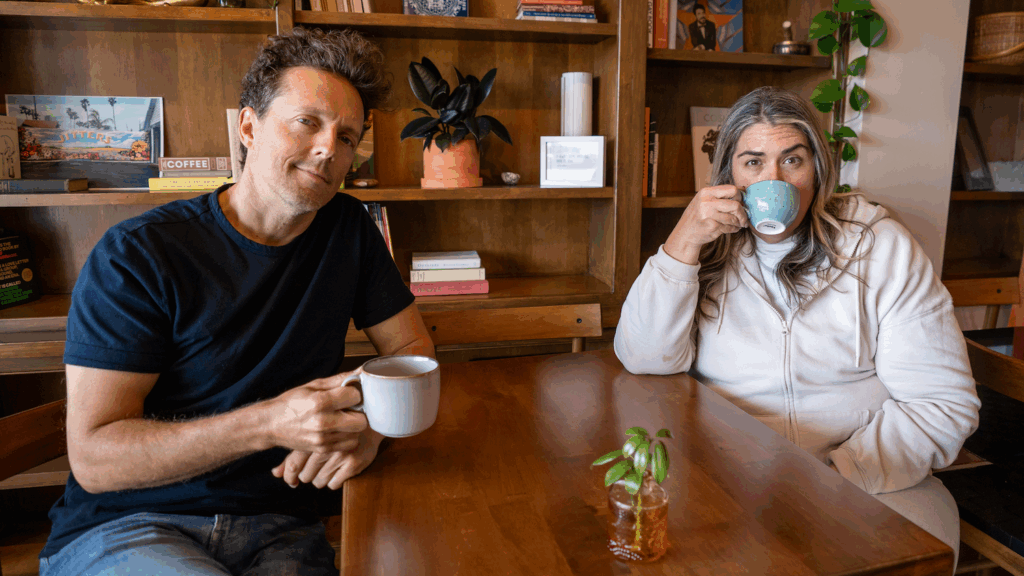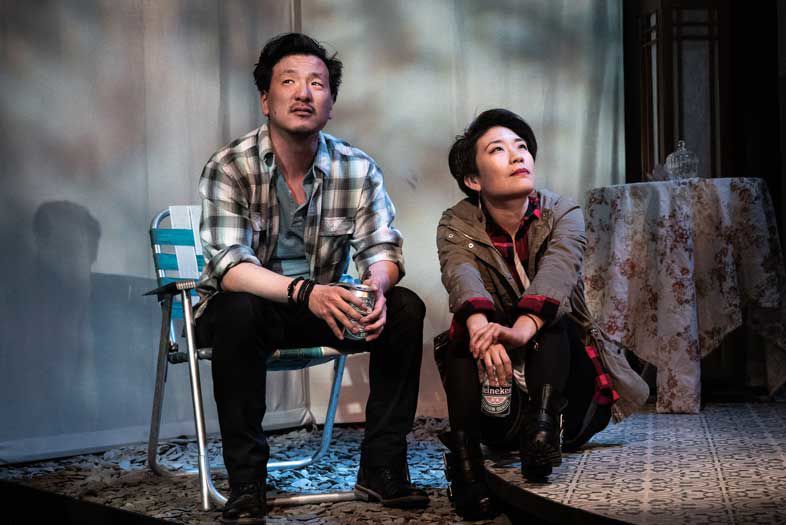Much, if not most, of the ink that San Diego Magazine spills each month is devoted to food. Our food critic, Troy Johnson, could wax in greater detail than I about the renaissance the past two decades or so have seen in our society’s respect for the choices and methods behind our meals—manifesting in a broader consideration for dietary needs, or taking enough pride in a dish’s presentation to share it with our social networks.
Our relationship to food is often more personal, more formative and evocative of memory, than our relationships with some people. Having a different diet can be as significant a roadblock to mutual understanding as a different language (as any vegan picking bacon out of their green beans at family Thanksgiving knows too well).
Julia Cho’s script reaches moments of great poignancy that touch at deep, universal connections—unfortunately, at a larger scale the play is somewhat disconnected.
That’s the lens through which Aubergine approaches its characters. Ray’s father (Dana Lee) is dying of cirrhosis. In better health he required nothing fancier than Cup Noodles ramen, and now he can barely eat at all. Ray (Brian Kim) is a professional chef, a career choice his father always looked down on as domestic—”women’s work.” Knowing their remaining time together is swiftly dwindling, Ray enlists his ex, Cornelia (Audrey Park), who speaks more fluent Korean than he does, to contact his only other family, Uncle (Yong Kim), who’s still in the old country. To their surprise, Uncle shows up soon after, speaking virtually no English but doing his part to heal his brother’s pain with one of their mother’s beloved old recipes. Lucien (Terrell Donnell Sledge), a hospice nurse and, it’s strongly implied, an immigrant from a war-torn African nation, provides additional perspective on food, family, and mortality alike.
Julia Cho’s script is infused with lovely, poetic observations on all of the above, and the many ways that each can enlighten the other. It reaches moments of great poignancy that touch at deep, universal connections across linguistic and societal divides. Unfortunately, on a structural level the play is somewhat disconnected. Each character receives a major thesis-statement monologue about their personal history with food, indicated by center spotlight and their name projected overhead—and if these were unique, they would carry much greater impact.

Aubergine’s Delicious Ingredients Fall Short of a Meal
Dana Lee and Brian Kim in Aubergine | Photo: Jim Carmody
The problem is how much real estate the rest of the play’s spoken lines also give over to monologue—to the point that it’s almost unclear why the major ones are singled out, because eventually all the lucid characters share equal propensity for long, past-tense asides, each of seemingly equal importance. Most are well written and expressed, but taken together they drain momentum from the present action. This is made even more difficult because our point-of-view character, Ray, is for most of his stage time a tightly wound ball of stress, anger, and resistance to others—completely understandable considering his situation, but leaving us without much to grasp onto until Uncle’s fish-out-of-water presence introduces some comic relief and a less-dire problem to work out.
The play also has the highest number of false endings I’ve seen since Peter Jackson’s Return of the King—it seems to find one perfectly good resolution after the next, only to come back for yet another encore. A fifth character, Diane (Amanda Sitton) bookends the story just briefly enough for her absence to be distracting and her presence to feel unnecessary. There are plenty of isolated touching moments to commend the performances—Dana Lee’s final monologue is an especially moving, perfectly paced meditation on the contraction of mind preceding a peaceful death—but I still wish it all cohered better.
Aubergine, by Julia Cho
Directed by Todd Salovey of San Diego Rep
at Lyceum Theatre through February 17

Aubergine’s Delicious Ingredients Fall Short of a Meal
PARTNER CONTENT
Brian Kim and Audrey Park in Aubergine | Photo by Jim Carmody



















